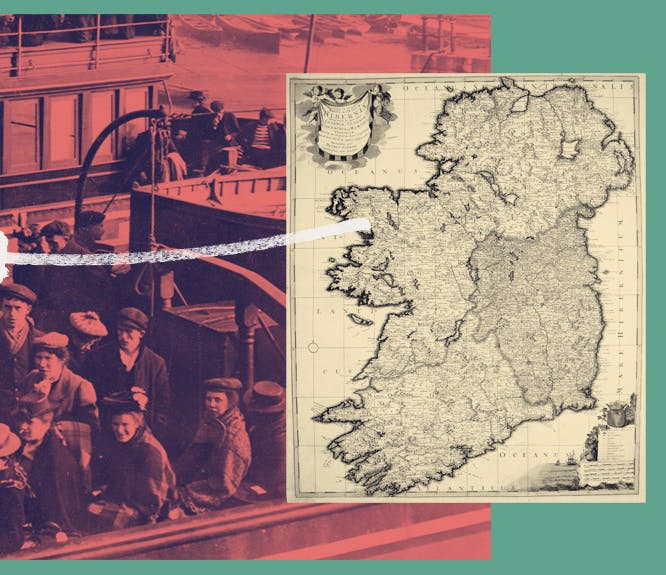New records from London to China
4-5 minute read
By Jessie Ohara | December 10, 2021
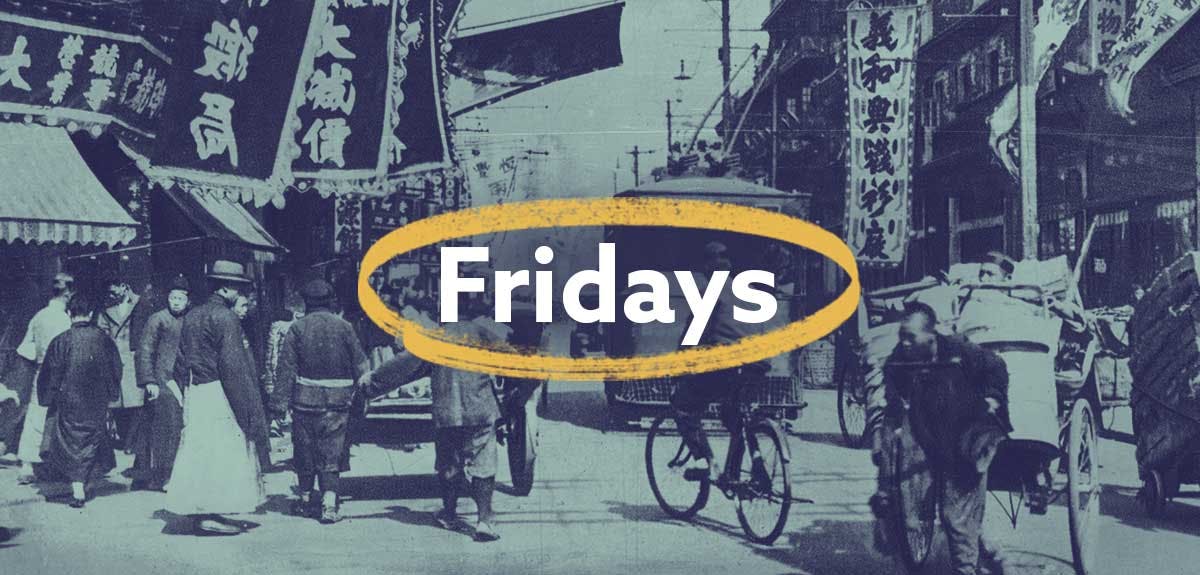
Discover histories from across the pond.
This week's release involves two unique record collections spanning 108 years. Here's a rundown of what's new this week.
Asia, Far East Directories & Chronicles 1833-1941
If you have ancestors with roots in the Far East, this collection may just detail where they were and when. Within its pages are records that span through China, Hong Kong, Japan, Korea, The Philippines, Indo-China, Malaysia, Siam, Borneo and The Dutch East Indies. This resource explores the narrative of late-colonialism, documenting Western workers, migrants, corporations and agencies, residing in the Far East temporarily or otherwise.
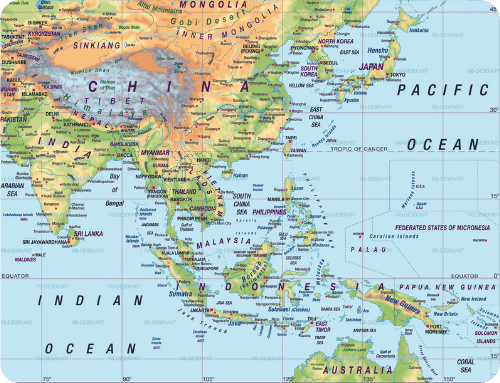
A map of the Far East, sourced from Welt Atlas.
This collection is as broad by nationality as it is by location - rather than focusing specifically on British residents and workers, its pages hold a much higher number of Americans, Canadians, Australians and other Westerners. The records were compiled annually from multiple sources, including government agencies and Western companies, so will be likely to contain your ancestors' name, occupation and employer, as well as the odd note detailing treaties, conflicts, changes of jurisdiction, and other public affairs.
London, Synagogue Seatholders 1904
This collection is more focused, but details no less history. It records a list of all synagogue seatholders in the area now known as Greater London in 1904. Rather than being a sweeping collection gathering details over the course of many years, it instead serves as a snapshot of the Jewish population in London in the early 20th century.
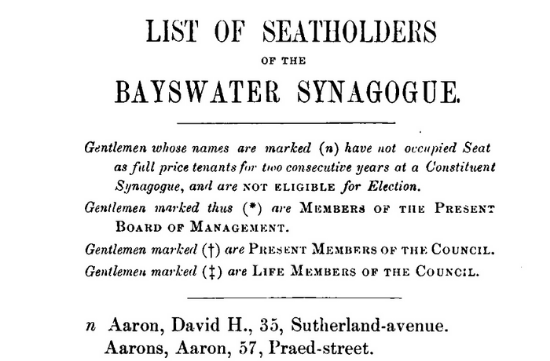
A snapshot of these records, which you can view here.
While World War 2 is perhaps the most prominent example of persecution against Jews, it is certainly not the earliest; in fact, their persecution can be seen to date as far back as Norman England, 1066-1290. It was during this time in which unjust suspicion from the monarchy was high enough to arrest every English Jew, search their homes, restrict their careers, and force them to wear an identifiable yellow patch - a decision highly recognisable now as a form of persecution enforced by Hitler.

The Yellow Badge, forcibly worn by Jews in the Middle Ages, Medieval and modern periods, and from 1939-1945 by European powers.
However, at the time that these synagogue seatholders were recorded in 1904, the Jewish population was increasing, having grown from 46,000 to 250,000 between 1880-1919. Many of these Jews were refugees from Russia, fleeing the Pale of Settlement region in which Jewish residency had been predominantly forbidden by the May Laws. These laws were intended to be temporary, but were consequently enforced for over 30 years. The Jewish population has stayed relatively similar since then, with 266,740 people listing their religion as Jewish in the 2001 Census.
From the archives
As is demonstrated by our new Far East Directories collection, and due to Britain's extensive colonial past, migration and travel records are key understanding to British history. We have considerable amounts of record collections focusing on British India, Australia, the Caribbean, and elsewhere in the world. Take a glance at this British India collection, which documents travellers and migrants across the former British colony, or this unique Australia Convict Ships collection, which details British convicts that were sent to Australian colonies between 1786 and 1849.
For both of these collections, as well as many more, it is important to view the image as well as the transcript. Often, it holds much more detail on your ancestor, allowing you to build a more colourful picture of their history.
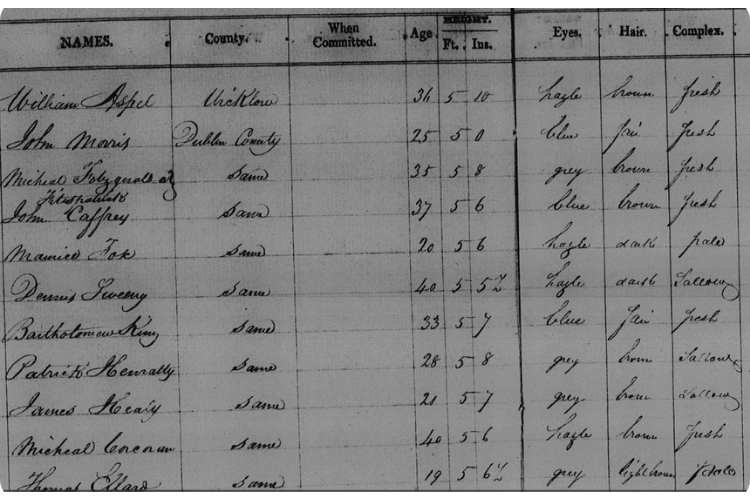
A record from the Australia Convict Ships collection, which notes both hair and eye colour of the convict - information not seen in the transcript. View this here.
It is because of our colonial past that many of our national icons were born in India and beyond, despite their English heritage. This includes some of our most famous authors. Rudyard Kipling, for example, was born in Bombay to architectural sculptor parents, and went on to pen The Jungle Book based off his experience growing up in India - you can view his birth record here. On the other end of the literary branch, George Orwell was born as Eric Arthur Blair in Motihari, British India. His ancestral house in the Indian city is now a historical monument. Clearly then, much of our national history lies beyond the waters surrounding our island - who knows how many stories exist across the ponds?
Newspapers
We have updated 13 of our existing titles, and added five brand new ones this week. Amongst the local history that lies in these pages is new title India, which interestingly makes early mention of Mahatma Ghandi, prior to his presidency at the Indian National Congress. View the full list below.
New titles:
- Bromley & West Kent Mercury, 1919, 1921, 1927-1930, 1933-1950
- India, 1890-1921
- Sheffield Public Advertiser, 1760-1763, 1768, 1770, 1772, 1774, 1776, 1787, 1790-1793
- South London Mail, 1888-1906
- Swanage Times & Directory, 1919-1936
Updated titles:
- Barrow Herald and Furness Advertiser, 1875, 1891
- Cambria Daily Leader, 1897, 1911
- Glasgow Courier, 1851, 1856
- Lancashire Evening Post, 1911-1915
- Lancaster Standard and County Advertiser, 1897
- Liverpool Journal of Commerce, 1861-1862, 1864-1867, 1869, 1871, 1890-1891, 1897, 1899-1905
- Macclesfield Courier and Herald, Congleton Gazette, Stockport Express, and Cheshire General Advertiser. 1844, 1858-1859, 1877, 1891
- Newark Advertiser, 1879-1891, 1897, 1905, 1908-1909, 1911, 1914, 1917, 1958, 1963, 1966-1968
- Northern Weekly Gazette, 1876, 1913
- Porthcawl Guardian, 1958
- Swansea and Glamorgan Herald, 1869
- West Ham and South Essex Mail, 1928
- Weymouth Telegram, 1874, 1876, 1879-1881
Do you have ancestors that you've traced across the continents? Get in touch with us on Facebook, Instagram and Twitter to share your stories.
Related articles recommended for you

Are you related to your partner? Find out with this brand-new feature
The Findmypast Community

From domestic servants to Prime Minister: Theresa May's Family Fortunes
Discoveries

Introducing the British Home Children Collection
What's New?
